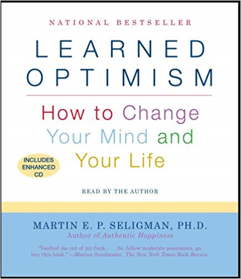
Resilience: Leadership is tough today.
Challenges are thrown at us every day at breakneck speed and many leaders go home at the end of each day thinking they’ve succeeded in some but failed in others. Resilience is key to surviving and flourishing as a leader and as a person, and crops up as a theme increasingly in my coaching.
But what is resilience and how can we develop it?
In my research into this I’ve concluded that resilience is more than just the “positive mental attitude” platitudes of motivational books and speakers. If we could all tell ourselves to think positively and then do it, things would be easy (and coaches redundant!). In his book Learned Optimism (1991) Martin Seligman describes resilience as the ability to recover from serious set-backs. He found that this ‘bounceback-ability’ is a function of the stories we tell ourselves about why things happen and that these mindsets are often based on patterns and scripts that can be laid down in our childhood or early career.
In summary, Seligman says that those who reflect on something negative that has happened to them and conclude that it was just one thing that went wrong (“Specific”), that it can be changed (“Temporary”) and that it may not attributed to something within them (“External”) will have a more resilient mindset.
Those who look at negative experiences with a narrative that sees them as indicative of a wide-ranging personal weakness (“Global”), that it can’t be changed (“Permanent”) and that they are solely to blame (“Internal”) will be less resilient and able to bounce back.
Interestingly, he also notices that the opposite is true when we reflect on a positive experience. Then it is helpful to see it indicative of a global strength, not a temporary success and that it is attributed to a personal strength and not some external stroke of luck.
Assess your own Resilience
Seligman’s free online Optimism profile questionnaire helps you assess your own Resilience profile (link) and there are a range of strategies that can be used to ‘re-programme’ your unhelpful narratives once you understand them. He says more in this You Tube video.
I have used Seligman’s approach and some of his tools with clients ranging from management trainees, salespeople struggling with rejection, senior leaders and even teenagers and their parents in a premiership rugby academy learning to cope with the ups and downs of professional sports.
What they often had in common was the human insecurity that, despite their outward confidence, set them back in coping with negative experiences and capitalising on positive ones. The answer is not in telling them to change their attitude and think positively but to develop understanding of these narratives and strategies for turning negative stories into positive ones.
Executive Coach Gary Storer helps his clients refine their skills, thinking and inner resources to equip them not just to deal with present challenges but also anything they encounter in the future.
Read more blogs from Gary – Leading During a Crisis: Leadership Mindsets and Skills

+ 4 more
Masters qualified coach developing leaders, future leaders and senior teams throughout UK